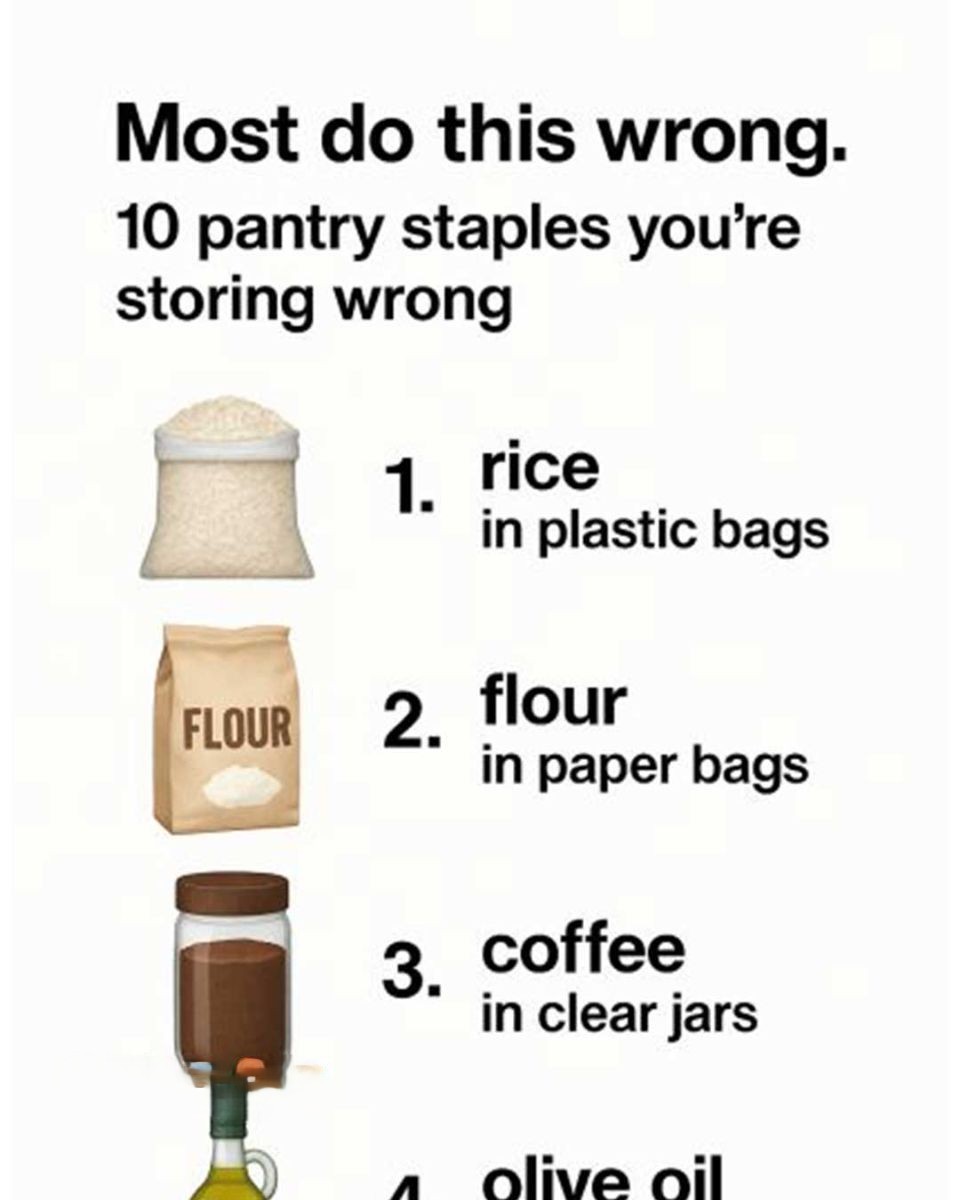Potatoes should be stored in a cool, dark, and well-ventilated place, such as a pantry or a cellar. A temperature of around 45-50°F (7-10°C) is ideal. Avoid storing them in plastic bags; instead, use a paper bag or a basket to allow for air circulation.
6. Storing Onions and Garlic Together
While onions and garlic are often stored together, they actually require different conditions, which can lead to spoilage. Onions release moisture and gases that can cause garlic to sprout and spoil faster.
Onions should be stored in a cool, dry, well-ventilated space, ideally in a basket or mesh bag. Garlic, on the other hand, should be stored in a dry, dark place, away from onions, to prevent it from sprouting. Both should be kept out of the refrigerator.
7. Keeping Honey in the Fridge
Refrigerating honey is a common mistake that causes it to crystallize, making it hard to use. Honey is a natural preservative and does not need refrigeration to stay fresh.
Store honey in a tightly sealed container at room temperature. If your honey does crystallize, you can restore it by placing the jar in warm water and stirring until the crystals dissolve, but avoid overheating as it can destroy beneficial enzymes.
8. Storing Bread in the Refrigerator
Many believe that refrigerating bread keeps it fresh longer, but the cold temperature actually accelerates the staling process. This happens because the starches in bread recrystallize faster in the cold.
To keep bread fresh, store it in a bread box or a paper bag at room temperature. For long-term storage, consider freezing bread instead, as this will help preserve its texture and flavor. Make sure to wrap it tightly in plastic wrap or a freezer bag before freezing.
9. Storing Nuts in the Pantry
Nuts are often stored in the pantry, but their high oil content makes them susceptible to going rancid when exposed to heat and light. This can lead to a loss of flavor and nutritional value.
To extend the shelf life of nuts, store them in airtight containers in the refrigerator or freezer. They can last several months in the refrigerator or up to a year in the freezer. Be sure to bring them to room temperature before consuming to enjoy their full flavor.
10. Leaving Tomatoes on the Counter
While it might seem logical to keep tomatoes on the counter, this can lead to over-ripening and spoilage. Once tomatoes are ripe, they should be consumed quickly or moved to the refrigerator to slow down further ripening.
However, refrigerating tomatoes can sometimes affect their texture and flavor. To counteract this, allow refrigerated tomatoes to come to room temperature before eating. If your tomatoes are not yet ripe, keep them stem side down at room temperature until they ripen.
11. Keeping Spices Above the Stove
Storing spices above the stove might be convenient, but the heat and humidity from cooking can cause them to lose their potency quickly. Exposure to light and moisture can also degrade their quality.
To preserve the flavor and aroma of your spices, store them in a cool, dark, and dry place. A dedicated spice drawer or a cupboard away from heat sources is ideal. Spices stored properly can maintain their potency for up to two years, though some, like ground spices, may lose their flavor sooner.

